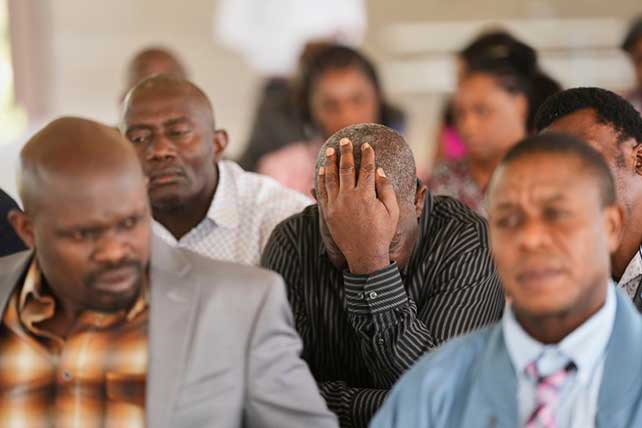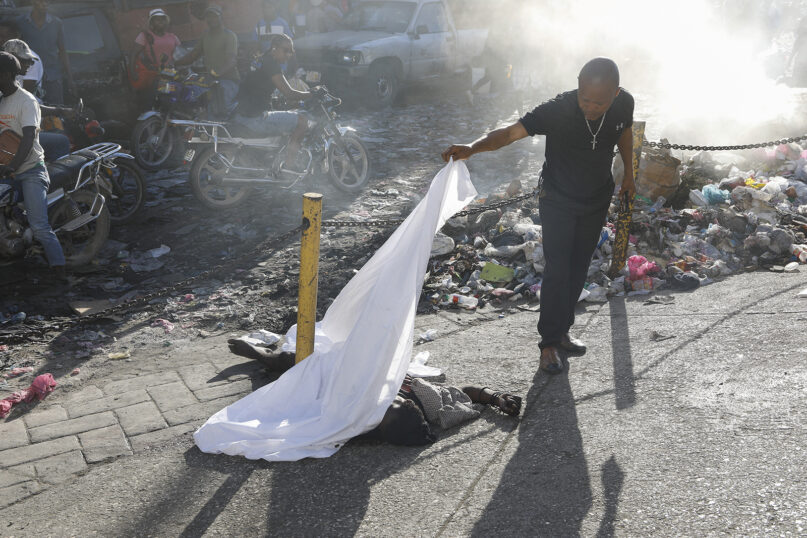The programs didn’t “serve a significant public benefit, are not necessary to reduce levels of illegal immigration, did not sufficiently mitigate the domestic effects of illegal immigration, are not serving their intended purposes, and are inconsistent with the administration’s foreign policy goals,” Noem said in a March 25 notice.
According to the United Nations, more than 5,600 people were killed due to gang violence in Haiti in 2024. In Port-au-Prince, the nation’s capital, armed gangs have gained control of entire neighborhoods and could soon control the entire city.
A person lifts a sheet to look at the identity of a body lying on the ground after an overnight shooting in the Petion Ville neighborhood of Port-au-Prince, Haiti, March 18, 2024. (AP Photo/Odelyn Joseph)
The DHS decision to cut short Haiti’s TPS status prompted angst among the Haitian community, said Dorsainvil. Some feared arrests by immigration enforcement.
Springfield is home to many Haitians who fled gang violence, and the announcement deterred many from stepping outside, he said. Once thriving, Springfield’s Haitian community saw a decline in church service attendance and English classes.
“That created some kind of chaos,” said Dorsainvil. “And the thing is, not only the chaos, but also they felt like they were being trapped by the fact that it was a short notice. … It was disastrous.”
For those with relatives in Canada, attempting the journey across the border also wasn’t an option, as they feared being detained by U.S. law enforcement and deported back to Haiti. Taking the risk to return to the gang-stricken island would be “a suicidal decision,” he said.
Bishop Nicolas Homicil, pastor at Voice of the Gospel Tabernacle church in the Mattapan neighborhood of Boston, said the ruling gave his migrant congregants “relief for some time.” When the Trump administration announced it would revoke the legal status, members of the community were devastated, he said.
He said the administration is attempting to “mistreat the poor people (of Haiti) who left their home for specific reasons,” and people who were affected started to feel “really depressed” after the decision.
The Trump administration’s plan was part of a broader wave of anti-Haitian sentiment, he said, noting that last summer during the run-up to the presidential election, Trump and now-Vice President JD Vance spread unverified claims that Haitian migrants in Ohio were eating their neighbors’ pets.
Haitians are stuck in a difficult situation, Homicil said, as the U.S. ultimately is set to end TPS for them and they still must find another legal path to stay in the country. Gangs make it impossible for migrants to return in Haiti, he added.
“The country is a disaster, and the U.S. government (knows) that,” he said. “When I heard Homeland Security say that the situation in Haiti has improved, I am wondering which Haiti they are talking about.”
By Helen Teixeira and Fiona André —This article originally appeared here.


